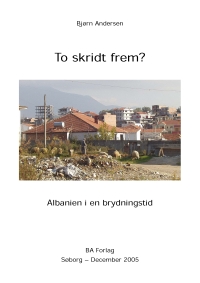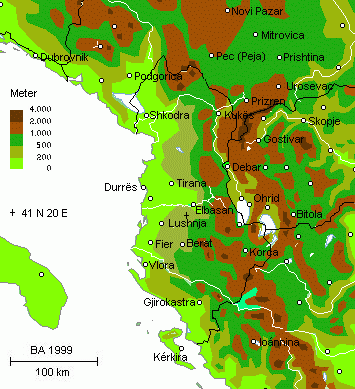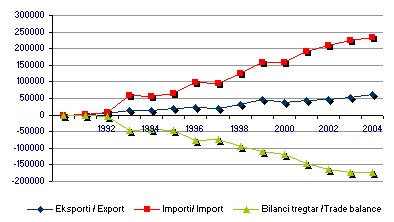Sidste Nyt fra Albanien, Kosóva og Makedonien
The Latest News from Albania, Kosóva and Macedonia
# 292 - 8' årgang - 24.02.2006
Version 1.1 • 24.02.2005
PDF for printing •
Info om »Sidste Nyt«
Udgiver:
Bjørn Andersen
Publisher:
Bjoern Andersen

PM Sali Berisha og UM Besnik Mustafaj (forrest th) har haft besøg af Jose Manuel Barroso og Olli Rehn (forrest tv) fra EU. Foto: Officielt foto fra PM's kontor.
![]()













